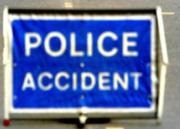EDIT: I’ve changed the title to one that Red might not want showing up as No. 1 on my Popular Posts list on the left! I’ve noticed that this post has been deliberately forced to stay at the top by someone keep visiting it for several days, even though it is a pretty mundane story in itself. I suspect someone is after a bit of free advertising. (As soon as I did that, the visits stopped. Odd, eh?)
RED driving school has apparently “released” some “research” – but I really think someone needs to explain to them what “research” actually is in truly scientific terms.
As I’ve mentioned in several recent posts, it is Road Safety Week, and every organisation and his dog is anxious to climb aboard the band wagon and get some valuable publicity out of it. Some are making a better job of it than others.
Let’s just state some facts, here. Young drivers make up about 12% of the driving population, but they account for 33% of road fatalities. It is difficult to get positive spin out of that, no matter how much of a youth worker you think you are.
RED’s “research” amounts to a questionnaire put to 500 young drivers – quite possibly ones taught by RED instructors. The outcome is that a third (and that’s ONLY a third) think they have fewer bad habits than their parents and drive more in accordance with the Highway Code.
RED is clearly aided and abetted in mangling any statistics that might be involved by Kent Online, who have turned it into the banner headline: Young drivers `more careful than parents’.
To start with, that’s not what the “research” found. Having fewer bad habits and knowing more about the Highway Code does not make you a “more careful” driver. You get that label by having fewer accidents – and the fact I quoted above about road fatalities is far more significant in that respect.
And one-third of respondents answering one way is NOT a majority. It means that two-thirds – a sizable majority – DON’T think they are safer than their parents or know more about the Highway Code! This is obviously the correct interpretation of the “research”, and not the one RED or Kent Online is waffling about.
Ian McIntosh, CEO of RED Driving School said: “We thought it was important to ask young drivers, both learners and newly qualified, about their thoughts on how well they drive.”
Why? The only thing you’re going to show is how wrong they are. And you succeeded. He continues:
“It’s good to see that young drivers are confident in their driving ability and believe that, because they’re going through or have recently been through the driving tuition and test procedure, they’re better placed to drive safely and competently.”
He is on a different planet here. Confidence is what gets them into near-death situations in the first place. It is lack of experience that is the problem – yet he is obviously at pains to suggest they’ve had good tuition. Tuition is not the issue. But I like this part:
“We know that, overall, young drivers have a higher tendency to drive less safely…”
Well, that’s not what you or Kent Online has just tried to report, is it? You’ve just clouded the issue, which will make any changes to the law or testing system even more difficult to progress.
 You can’t fluke your way through the driving test – you’re either good enough to pass it or you’re not. The only thing that the test doesn’t evaluate is experience, and it never has done.
You can’t fluke your way through the driving test – you’re either good enough to pass it or you’re not. The only thing that the test doesn’t evaluate is experience, and it never has done. means try and deal with those issues separately, but you simply can’t let the carnage continue while every New Age initiative in the meantime fails miserably to change those attitudes.
means try and deal with those issues separately, but you simply can’t let the carnage continue while every New Age initiative in the meantime fails miserably to change those attitudes. I often wonder to myself why it is that so many instructors are dead set against parents or friends teaching people to drive.
I often wonder to myself why it is that so many instructors are dead set against parents or friends teaching people to drive. reported on high premiums due to a disproportionate number of accidents involving young drivers. I reported on this
reported on high premiums due to a disproportionate number of accidents involving young drivers. I reported on this